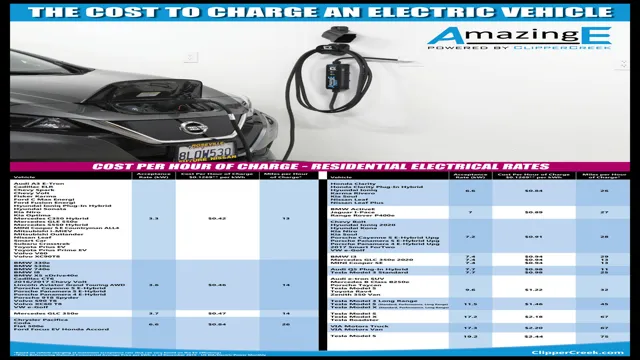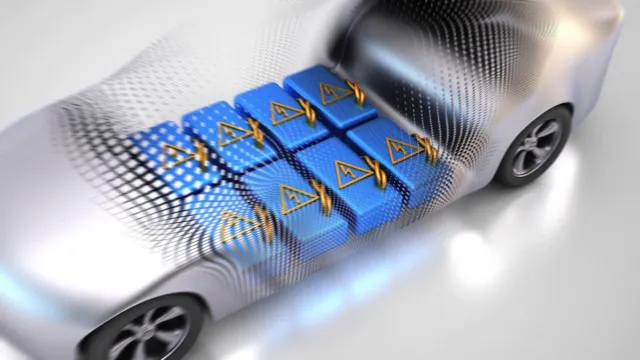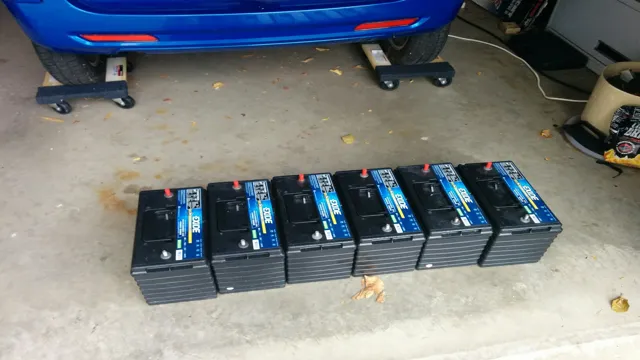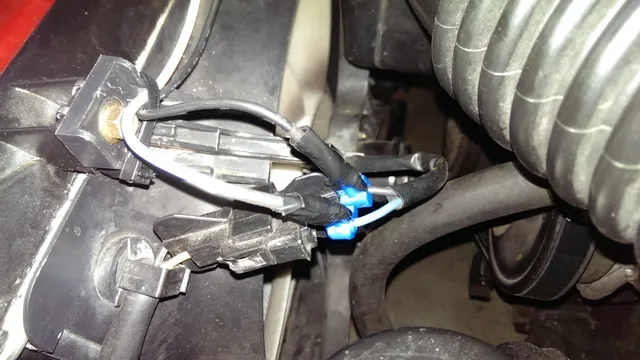Magnesium: The Revolutionary Ingredient in Electric Car Batteries
Have you ever wondered about the future of electric cars? As we shift towards a more sustainable future, it’s hard not to consider the advancements being made in battery technology. Lithium-ion has been the popular choice for powering electric vehicles, but what if we told you there’s a new contender in town? Enter magnesium batteries – the potential future of electric cars. Unlike the lithium-ion batteries we’re familiar with, magnesium batteries offer a higher energy density.
This means they can provide more power while remaining smaller and lighter, making them ideal for electric vehicles. Additionally, magnesium is much more abundant and cost-effective than lithium, which is a big win for both manufacturers and consumers. But before we all ditch our current electric cars for ones powered by magnesium batteries, there are still a few kinks to work out.
Right now, magnesium batteries face some challenges, such as limited cycle life and slow charging rates. However, researchers are actively working on solutions and making significant progress. The emergence of magnesium batteries certainly sparks excitement and promise for the future of electric cars.
It’s reassuring to see the push for sustainable technology isn’t slowing down, and we can expect more exciting advancements in the coming years. Will magnesium batteries be the way forward for electric cars? Only time will tell, but for now, we can’t wait to see what’s in store for the industry.
The Benefits of Magnesium Batteries for Electric Cars
One of the biggest advantages of using magnesium batteries in electric cars is their high energy density. Compared to traditional lithium-ion batteries, magnesium batteries have a higher energy storage capacity, which means they can pack more power into a smaller battery size. This translates into longer driving ranges for electric cars, reducing the need for frequent charging and making EVs a more practical choice for daily commuting or long-distance road trips.
Additionally, magnesium is much more abundant than lithium, which reduces the cost of manufacturing batteries and makes them more sustainable in the long run. While there are still some technical challenges to overcome, magnesium batteries have the potential to revolutionize the electric car industry and help us transition towards a greener, more energy-efficient future.
Increased Energy Density
Magnesium Batteries As electric cars continue to grow in popularity, there is a growing need for more efficient and powerful batteries. This is where magnesium batteries come in. Unlike traditional lithium-ion batteries, magnesium batteries offer an increased energy density, which provides longer driving ranges for electric cars.
This is due to the fact that magnesium ions have two positive charges, which let them carry more energy than lithium ions. In addition to their increased energy density, magnesium batteries offer a number of benefits for electric cars. They are safer and less prone to fire than traditional lithium-ion batteries, making them a more attractive choice for automobile manufacturers.
They are also more environmentally friendly, as magnesium is abundant in the earth’s crust and can be recycled easily. One potential drawback of magnesium batteries is that they are less stable than traditional lithium-ion batteries. However, researchers are working on solutions to this problem, including improving the electrode materials used in the batteries.
With continued research and development, magnesium batteries have the potential to revolutionize the electric car industry and make electric cars even more practical and efficient.
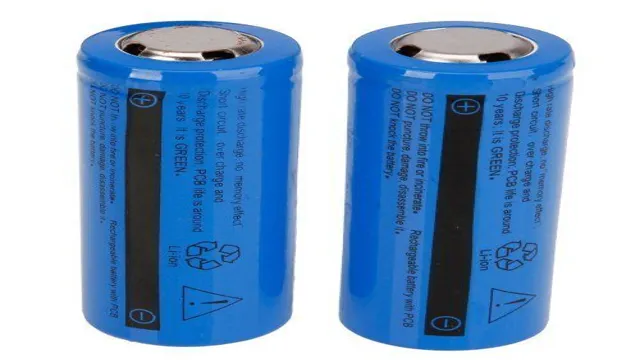
Lower Weight and Cost
Magnesium batteries are gaining popularity as an alternative power source for electric cars due to their numerous benefits. One of the most significant advantages of magnesium batteries is their lower weight and cost compared to traditional lithium-ion batteries. Magnesium is abundant and widely available, making it a cost-effective choice for battery production.
Additionally, these batteries are lighter than their counterparts, which can significantly reduce the weight of the electric vehicle and increase its range. This weight reduction not only improves fuel economy but also makes the car easier to handle and more maneuverable on the road. Overall, magnesium batteries offer a promising solution to the challenges of energy storage technology in electric cars, making them a top contender for the future of the automobile industry.
Improved Safety
Magnesium Batteries for Electric Cars When it comes to electric cars, safety has always been a major concern. But with the development of magnesium batteries, this concern may soon be a thing of the past. Magnesium batteries are not only lighter and more efficient than their traditional counterparts, but they are also much safer.
Unlike lithium-ion batteries, which are prone to thermal runaway and can catch fire in extreme conditions, magnesium batteries are much less likely to suffer from these issues. This is thanks to their non-flammable electrolyte and the fact that they don’t generate as much heat during operation. But that’s not all.
Magnesium batteries also have a longer lifespan than lithium-ion batteries and are more environmentally friendly. They can be recycled more easily and produce less waste, making them a more sustainable option overall. So, not only do magnesium batteries offer improved safety for electric cars, but they also provide a more efficient and eco-friendly solution for powering our vehicles.
Challenges and Advancements in Magnesium Battery Technology
With the rise of electric cars, there has been a growing demand for efficient and affordable batteries to power them. One promising solution is the use of magnesium batteries, which have the potential to be cheaper and more environmentally friendly than traditional lithium-ion batteries. However, there are still significant challenges that need to be overcome in order to make magnesium batteries commercially viable.
One of the biggest hurdles is finding a suitable electrolyte that can efficiently transport magnesium ions without causing the battery to degrade over time. Additionally, there have been recent advancements in the use of hybrid materials that combine magnesium with other elements to enhance its performance. While magnesium batteries are still in the early stages of development, they hold promise for revolutionizing the electric car industry and reducing our dependence on fossil fuels.
Overcoming Corrosion and Instability
Magnesium battery technology has come a long way in recent years, but there are still some challenges that need to be overcome. One of the biggest hurdles is corrosion and instability. Magnesium is a highly reactive metal that can easily corrode, which can lead to issues such as reduced battery performance and safety concerns.
However, advancements in battery design and materials are helping to address these challenges. For example, researchers are exploring the use of protective coatings to prevent corrosion, as well as new materials that can improve stability and reliability. At the same time, efforts are being made to improve the energy density and efficiency of magnesium batteries, which could make them a more practical and cost-effective alternative to traditional lithium-ion batteries.
As the field continues to evolve, it is likely that we will see even more breakthroughs and innovations in magnesium battery technology in the years ahead.
Progress in Electrolyte Development
Magnesium Battery Technology Magnesium battery technology is rapidly gaining interest as a possible alternative to lithium-ion batteries. However, its development has faced significant challenges due to the lack of suitable electrolytes that can allow for efficient magnesium ion transfer. Electrolytes are a crucial component of batteries, acting as the medium that helps cycling ions between the electrodes.
The ideal electrolyte for magnesium batteries should have good conductivity, stability, and compatibility with electrode materials. Recent advancements in electrolyte development have shown promising results that could help overcome some of the barriers facing magnesium batteries. New materials and additives have been synthesized and tested, leading to improved ion transportation and increased battery performance.
The breakthroughs have helped drive this technology closer to commercialization, making it a viable option for use in various applications such as electric vehicles and portable electronics. Magnesium batteries could offer several advantages over existing battery technologies, including high energy density and safety, making them a potentially game-changing technology in the future.
Recent Breakthroughs in Magnesium Anodes
Magnesium Anodes Magnesium battery technology is gaining traction as a potential alternative to lithium-ion batteries. One of the challenges of magnesium batteries has been the use of magnesium as an anode material, as it is prone to corrosion and rapid degradation. However, recent breakthroughs in magnesium anode technology have addressed these challenges.
Researchers have developed a high-performance magnesium anode that is more resistant to corrosion and exhibits stable and reversible electrochemical cycling. This has been achieved through the use of coatings and nanostructured materials that protect the magnesium anode from the harsh electrolyte environment. Furthermore, there has been progress in developing novel electrolytes that enable the efficient transfer of ions between the magnesium anode and cathode, leading to improved battery performance.
These advancements in magnesium anode technology could potentially lead to the development of high-energy density, low-cost magnesium batteries that could revolutionize the energy storage industry.
The Future of Electric Car Batteries
One of the most significant advancements in electric car batteries is the utilization of magnesium as a key component. Baojun Xu, a chemist at the Pacific Northwest National Laboratory, has developed a solid-state magnesium battery that is capable of maintaining high energy capacity and allowing for faster charging. This new technology has the potential to revolutionize the electric vehicle industry as it is more abundant and cheaper than other metals such as lithium.
Moreover, magnesium is non-toxic and doesn’t pose any safety concerns, unlike lithium-ion batteries. Additionally, the use of magnesium in batteries could lead to the creation of more lightweight and efficient electric vehicles that are capable of covering longer distances on a single charge. As the world transitions to cleaner energy sources, this new technology offers a promising solution that could help reduce carbon emissions and help us achieve a sustainable energy future.
Innovations In Energy Storage Technologies
The future of electric car batteries is looking bright thanks to a recent surge in innovation in energy storage technologies. With the increasing demand for electric vehicles, there is great pressure to develop batteries that are not only efficient but also have a longer lifespan. One such technology that is gaining prominence is solid-state batteries.
Unlike traditional lithium-ion batteries, solid-state batteries use a solid electrolyte instead of a liquid one, making them safer and more stable. Solid-state batteries also have the potential to significantly increase the range of electric vehicles and reduce charging times. Another technology that is gaining traction is flow batteries, which store energy in two liquid electrolytes separated by a membrane.
Flow batteries can store vast amounts of energy and can be recharged quickly by simply replacing the discharged electrolyte with a fresh one. As technology continues to advance, it is likely that we will see a range of innovative energy storage solutions that will revolutionize the electric vehicle industry and make electric cars more accessible and practical for everyday use.
Impacts on Sustainable Transportation
The future of electric car batteries is constantly evolving as technology advances. One of the main impacts of sustainable transportation will be the development of more efficient and powerful batteries. With new innovations in battery chemistry, electric cars will be able to travel longer distances on a single charge, reducing the reliance on having to constantly recharge.
This will make electric cars more accessible to long-distance travelers and help to reduce the overall carbon footprint of transportation. In addition to longer range, advancements in battery technology will also lead to faster charging times. Imagine being able to charge your electric car in the same amount of time it takes to fill up a gas tank.
This will not only save time but also make electric cars more practical for everyday use. Another impact of sustainable transportation will be the development and implementation of more charging infrastructure. As the demand for electric cars increases, there will need to be more charging stations available to meet this demand.
This will create job opportunities and help to boost the economy. Overall, the future of electric car batteries is bright, and as technology advances, we can expect to see more sustainable transportation options become available. With longer ranges, faster charging times, and more charging infrastructure, electric cars will become more accessible and practical for everyday use.
This will help to reduce our reliance on fossil fuels and move towards a more sustainable and eco-friendly transportation system.
Conclusion: Why Magnesium Batteries are Worth Watching
In conclusion, the use of magnesium in electric car batteries is a game-changer in the world of sustainable transportation. Not only does it offer higher energy density, but it is also more environmentally friendly than traditional lithium-ion batteries. It’s like upgrading from a bicycle to a Ferrari – you get faster, sleeker, and more efficient.
So if you want to drive the future towards a greener and cleaner world, magnesium batteries are the way to go!”
FAQs
How does magnesium contribute to electric car battery production?
Magnesium is commonly used as an anode material in electric car batteries due to its high energy capacity and lightweight nature.
Are magnesium-based batteries more efficient for electric cars?
Magnesium-based batteries have not yet been widely adopted for use in electric cars, but research has shown that they have the potential to offer higher energy density and better performance compared to traditional lithium-ion batteries.
Can magnesium-based batteries reduce the cost of electric cars?
The cost of producing magnesium-based batteries is currently higher than lithium-ion batteries, but as research and development continues, it may be possible to reduce costs and make them a more viable option for electric car manufacturers.
What are some benefits of using magnesium in electric car batteries?
Magnesium-based batteries have the potential to offer higher energy density, faster charging times, and lower weight compared to traditional lithium-ion batteries. Additionally, magnesium is abundant and widely available, making it a potentially more sustainable option for electric car battery production.
